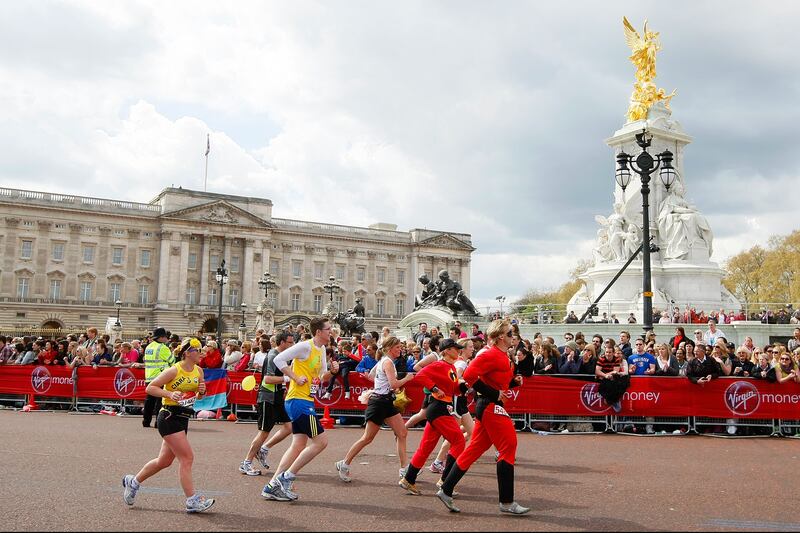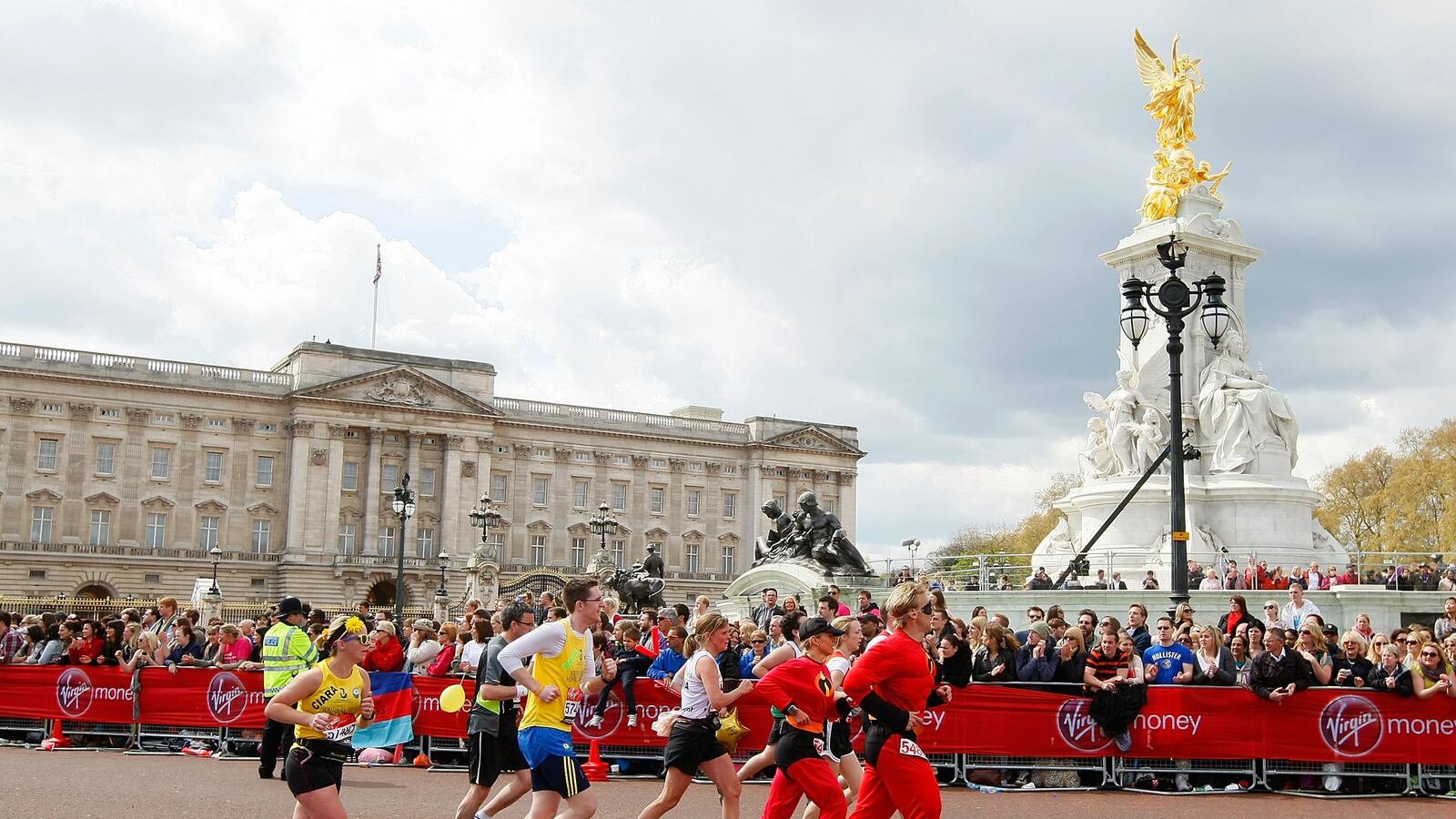The London Marathon will go ahead this Sunday despite the devastating bomb blasts in Boston that left three dead, including an 8-year-old boy, and injured 140 others, but organizers of the British run, who expressed shock at the terrorist violence and sympathy with the city of Boston, say they are reviewing security arrangements.

Within hours of the bombing they insisted they would not cancel the London event, which attracts about 36,000 runners from around the world, arguing that to hold the run, one of the world’s foremost marathons, is the best way to show solidarity with Boston and to send a defiant message to those responsible for the bombing.
“We are deeply saddened and shocked by the news from Boston,” said London Marathon chief executive Nick Bitel. “Our immediate thoughts are with the people there and their families. It is a very sad day for athletics and for our friends and colleagues in marathon running.”
The police commander overseeing security for the London race, Chief Superintendent Julia Pendry, said there is already a plan in place for the marathon but that in light of the Boston bombing “we will be reviewing our security arrangements.” Her boss, Metropolitan Police Commissioner Bernard Hogan-Howe, said the Boston police and the FBI were updating his officers on their investigation. “We will be taking some more precautions than we might otherwise have,” he added.
What those precautions are remains unclear, although British authorities say they will do everything to make the marathon safe for the runners and the hundreds of thousands of spectators who will line the route that starts in Blackheath and winds its way past some of the London capital’s most recognizable landmarks, including Tower Bridge and Big Ben, before finishing near the Queen’s London residence at Buckingham Palace.
For last summer’s Olympics in London, the British authorities mounted one of the biggest security operations seen since the height of the bombing campaign on the capital in the 1980s by the Irish Republican Army. Some of the security arrangements that included mounting missile defenses on the top of apartment buildings earned public scorn and complaints of overreaction.
Protecting a 26-mile course that runs through the heart of London presents a major challenge to London’s Metropolitan Police, who are also focused on maintaining law and order for the ceremonial funeral of former prime minister Baroness Thatcher today. Left-wing and anarchist protesters have threatened trouble.
London’s Mayor, Boris Johnson, said what happened in Boston was “horrific” but agreed the London race, which was first run in 1981, shouldn’t be canceled. “The police will be taking every precaution to make the funeral tomorrow and the London Marathon go ahead.”
The U.K.’s sports minister, Hugh Robertson, insisted he was “absolutely confident” the London Marathon could be kept safe, arguing that Britain’s police and intelligence services have deep experience in battling terrorists. “We do have some of the very best security services in the world and they will do what’s necessary,” he added.
But he conceded in an interview with BBC Radio that “it’s difficult” to ensure the whole route is secure. In today’s coverage of the Boston bombing Britain’s newspapers concluded that the fear of terrorism will hang heavy over the London run.
Big sporting events are traditionally hard to police, as last year’s Oxford-Cambridge boat race demonstrated when a single protester was able to disrupt the race for the first time since 1856, forcing it to be restarted.
Two-time British Olympic champion Mo Farah is expected to run half the course on Sunday and his agent says he won’t pull out. No high-profile runner has indicated an intention of withdrawing either, but along Pall Mall, the thoroughfare in front of Buckingham Palace, some amateur runners said they had talked with their families about whether they should still participate in the race.
“I have had to think long and hard about whether I should,” said Adam Samoon, who will be running for the first time at the London Marathon. He concluded the “best thing” to do is to run to show defiance. Other runners, who expressed anger at the besmirching of the Boston Marathon, said they will stick with their plan to run but weren’t so sure their families will come and watch.





